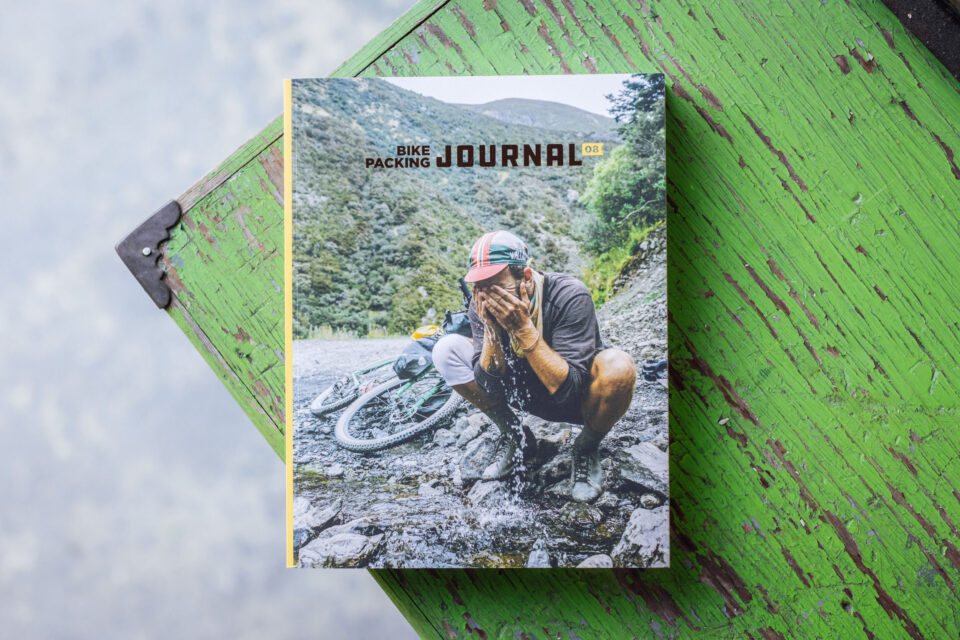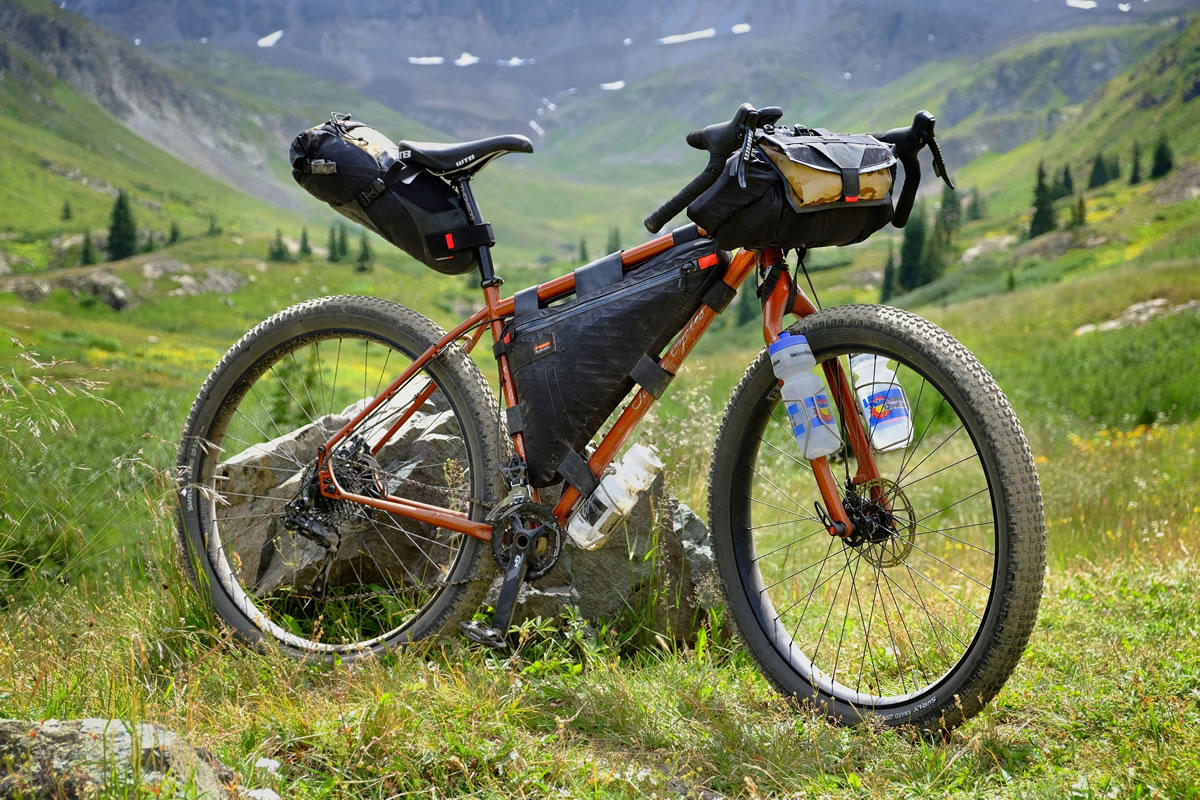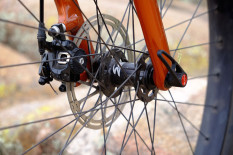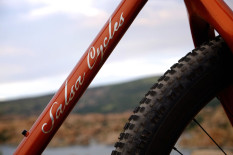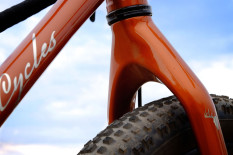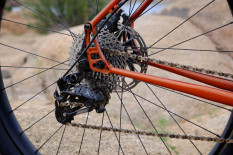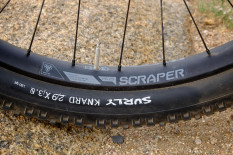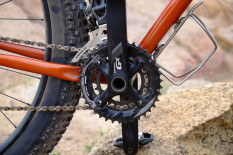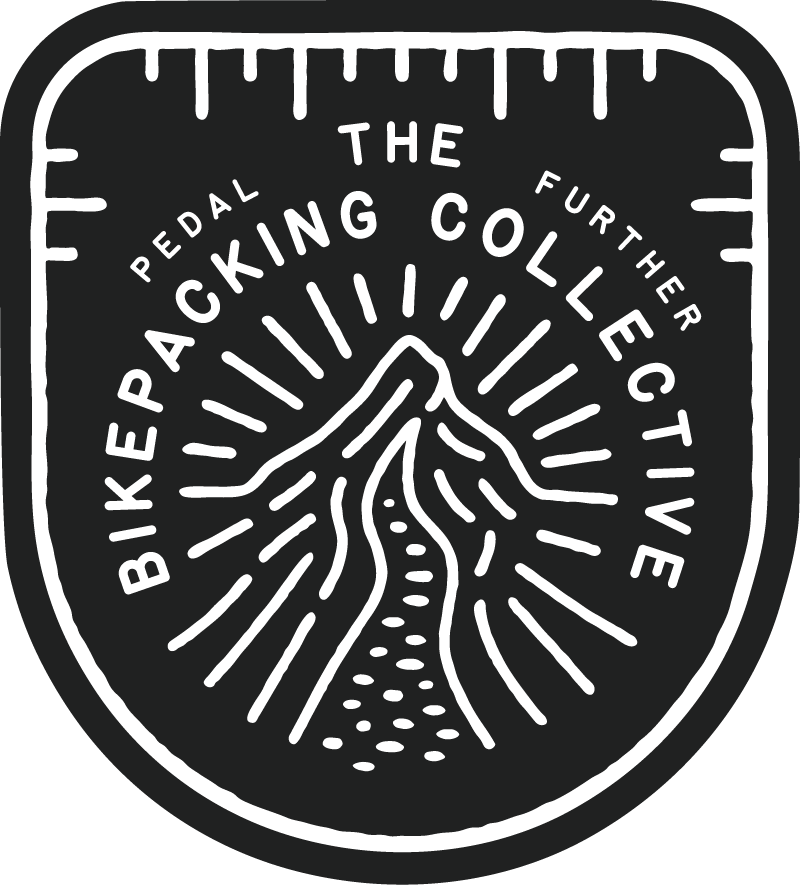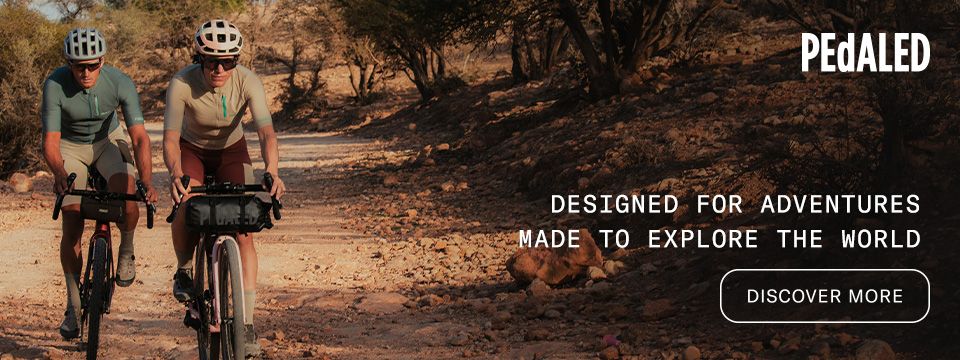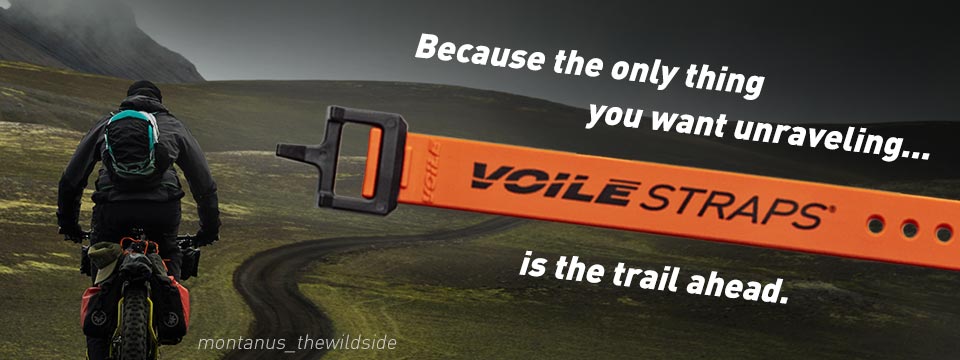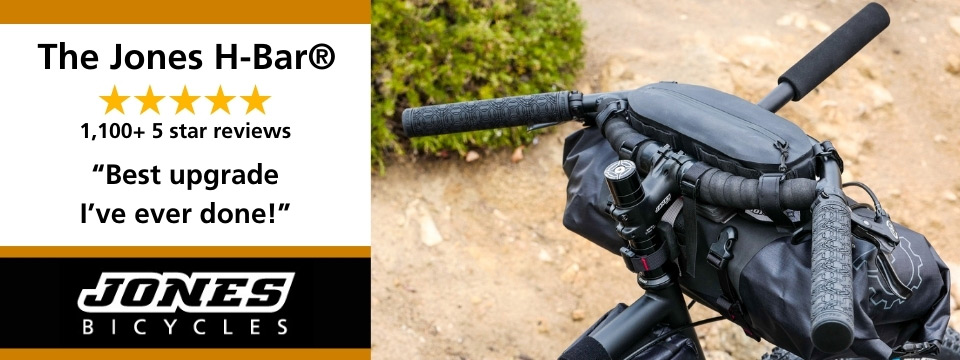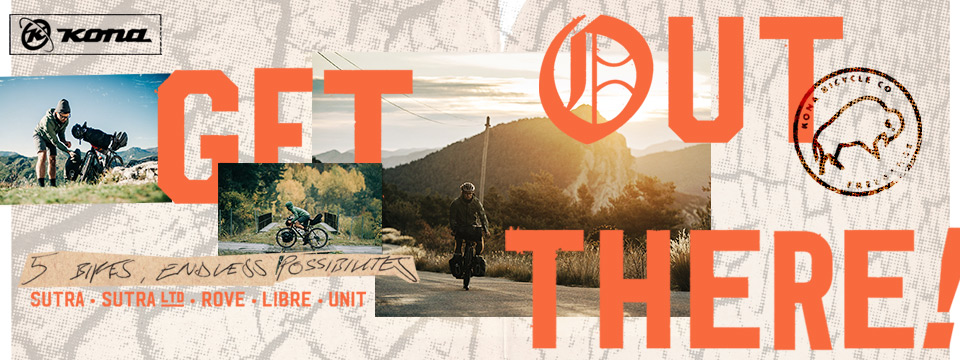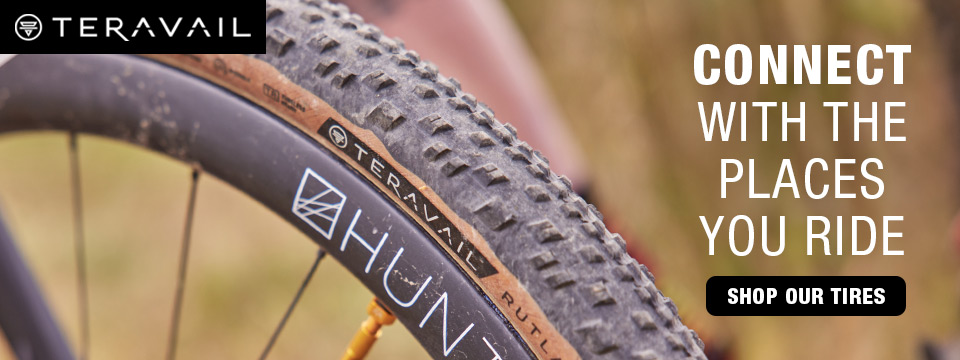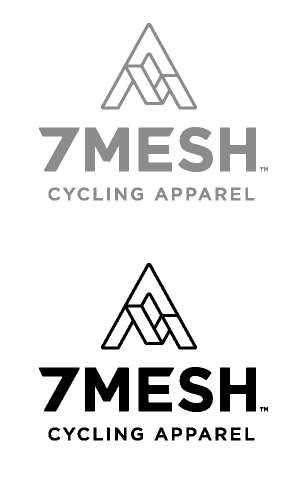Salsa Deadwood Review: Trail Tested
If the last few years have taught me anything, it is to keep an open mind with regard to bicycle design. Conceding that resistance to change is futile, I have since become eager to adopt all the strange and new offerings on the market like the forthcoming Salsa Deadwood.
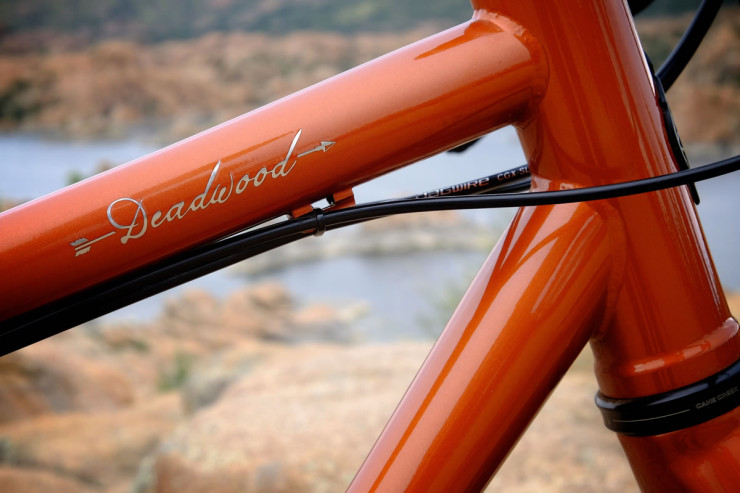
When it was announced to the public earlier this summer, the Salsa Deadwood appeared to be an instant hit. Those lucky few granted a chance to ride one, even if for just a few short miles, were quick to laud it as far more than a novelty. With its flared drop bars, shapely carbon fork, and 29+ wheel package, the Deadwood is decidedly unique, but many wondered how well it would deliver on its all-surface promise. After spending a month on the Deadwood, including a multi-day bikepack in the high Rockies, I can confirm first hand that the Deadwood achieved its design mission––dead on.
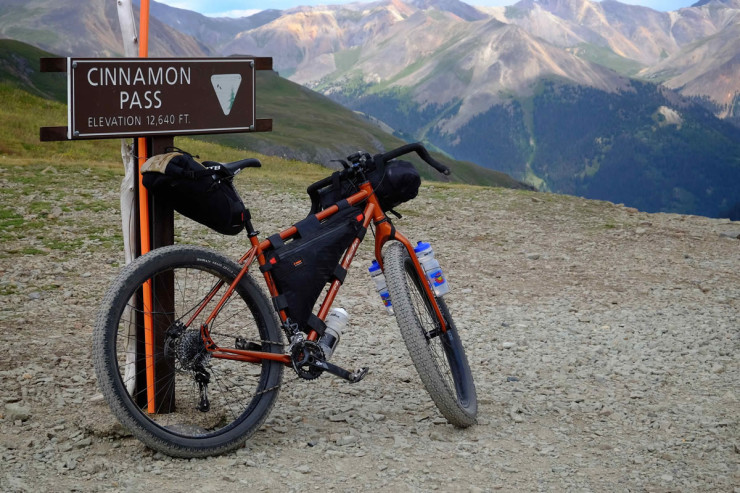
It has become a simplified description, but the Deadwood is in many ways, a Fargo with a larger wheel format. That seems like an innocuous riff on what is already a class leading bicycle, but those big 29+ wheels redefine the versatility of a drop bar mountain bike. Whereas my Fargo can be a handful on singletrack and in choppy conditions, the Deadwood eats up rugged terrain without complaint. On the Fargo I find myself carefully dodging little intrusions in the road, picking careful lines that won’t offend the standard width tires. With the Deadwood, I tackle those obstacles head on, the big hoops largely unfazed by small rocks, ruts and bumps. The result is a less fatiguing ride. We all know what that means––more miles.
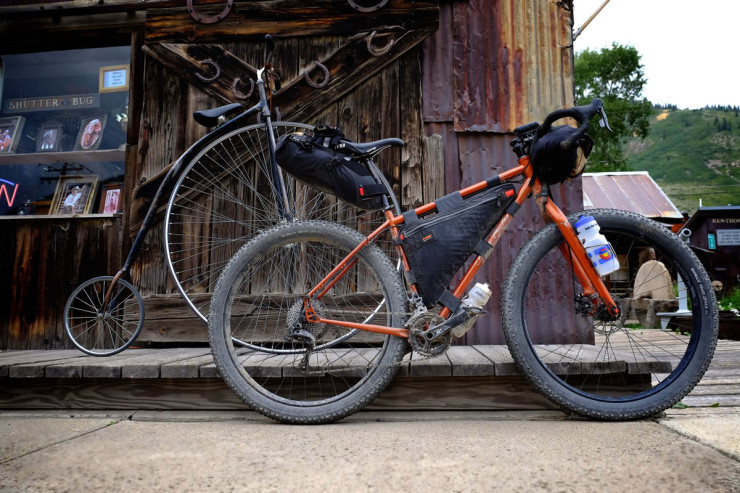
As I have discovered with other plus-sized bikes like the Salsa Bucksaw, Surly ECR, and Rocky Mountain Sherpa, the Deadwood shoulders a heavy bikepacking load extremely well and with little disruption to the bike’s natural unweighted performance. With a few pounds between the brake hoods packaged in a Bedrock Bags Entrada bar bag, the steering inputs were not altered by all too much, nor did the few pounds under the seat compromise the handling. As I have come to love of Salsa’s bikes, the auxiliary cage mounts on the underside of the down tube and fork blades permitted the addition of three large bottles for easy access and ideal weight distribution.
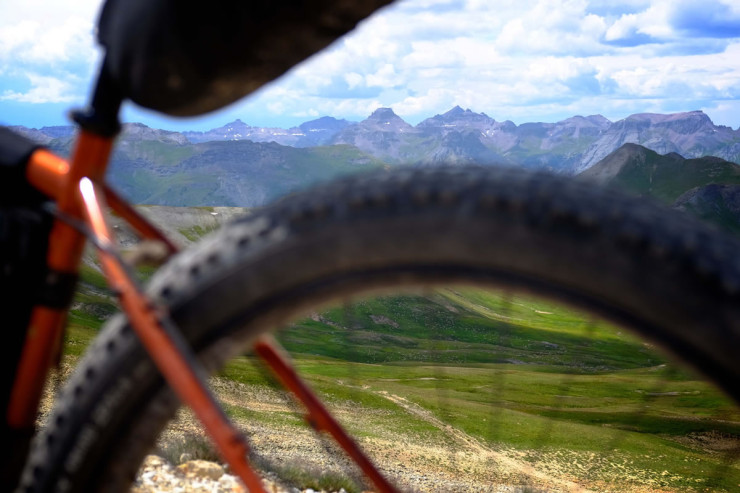
Getting more specific with the ride qualities, many people have asked me about the compliance of the all-carbon Firestarter fork. I have ridden this same fork on my Ti Fargo for a couple of years now, and while I can attribute many fine qualities to it, compliance is perhaps not one of them. This is not a negative, particularly with the addition of 29+ tires. Big wheels demand big stiffness to retain steering accuracy and the Firestarter is if anything, stiff. When charging hard into a turn, particularly under full load, the fork doesn’t yield a nanometer keeping that big front wheel pointed right where it needs to be. Mid-turn the fork permits finite corrections that are translated instantly. Whereas some forks are vague and mushy, the Firestarter is a scalpel.
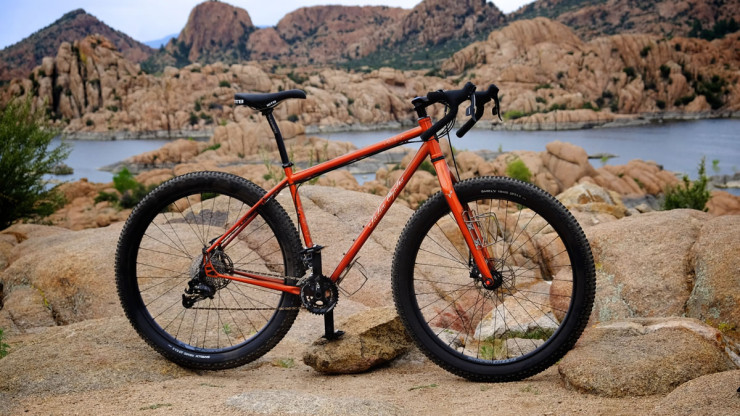
As someone who began riding when steel was the material of choice, I’ve always liked a classic metal rig, but once again, it would be difficult to isolate the subtle nuance of the frame against the plushness of the wheel package. The frame is however a stout foundation and the geometry is well chosen by Salsa’s engineers giving the bike a harmonious blend of stability and handling. The Deadwood is ideal for weekday training sessions and ready for weekend escapes with bags attached.
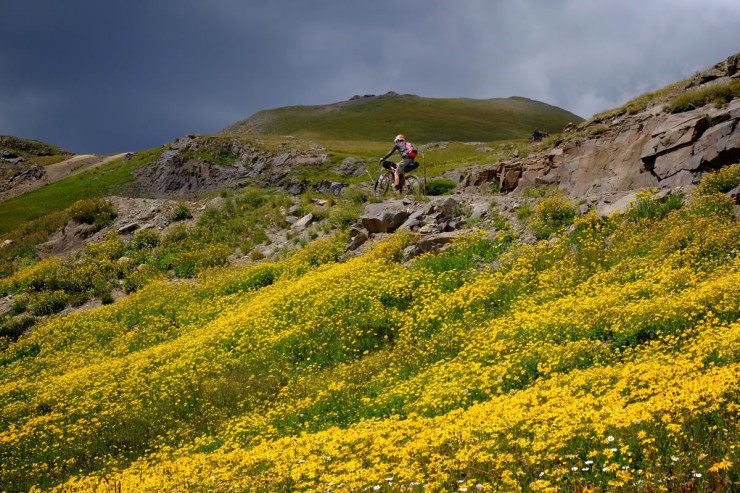
My final assessments turned my attention to the parts spec, which is in my opinion, perfect. I wouldn’t change a single thing save for lower gearing for the most offensive steeps. The stock ratios are likely low enough for most users, but my lap around the Alpine Loop with ascents over 12,800 feet had me grinding a bit more than I preferred.
Build Kit
- FRAME Cobra Kai 4130 CroMoly
- FORK Salsa Firestarter Carbon, 100mm Thru-axle
- HEADSET CANE CREEK 10
- STEM Thomson X4
- HANDLEBAR Salsa Woodchipper
- BAR TAPE Salsa Gel
- BRAKES SHIMANO BB7
- SHIFTERS SRAM Apex
- FRONT DERAILLEUR SRAM X7
- REAR DERAILLEUR SRAM X.O Type 2, Long Cage
- CRANKS & CHAINRINGS SRAM s1400 42/28T, BOOST
- CASSETTE SRAM 1030 11-36T 10SPD
- CHAIN KMC X10
- FRONT HUB Salsa 15mm x 100mm
- REAR HUB Salsa 12x148mm BOOST
- SPOKES DT SWISS COMPETITION
- RIMS WTB SCRAPER I45 29+ TUBELESS
- TIRES Surly Knard, 29×3″, 120TPI
- SEATPOST Thomson Elite, 20mm setback
- SADDLE WTB Pure V Comp
- RACK MOUNTS Rear mounts, Front-facing triple fork cage mounts
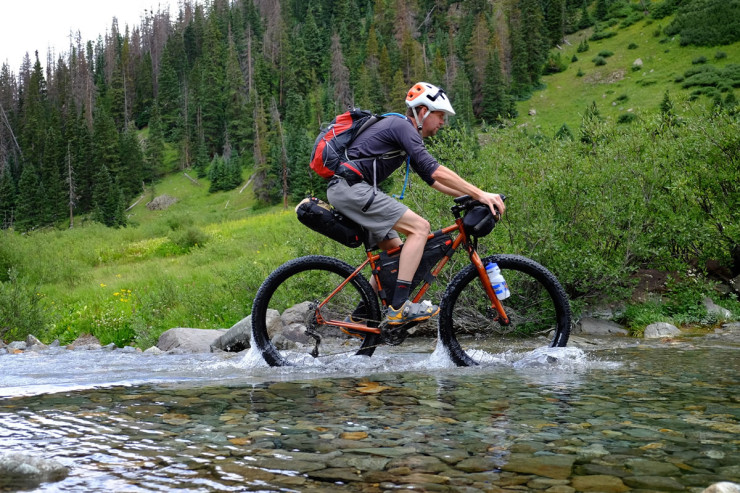
Wrap Up
It’s another thoughtful and creative bicycle from the free-thinkers at Salsa Cycles. Given its favorable reception, I have to assume they will sell out quickly. With this particular demo bike on a UPS truck headed back to Salsa HQ, I have already started saving my pennies for my own Deadwood. It is that good.
- WEIGHT (claimed by Salsa) 29.5 lbs (13.4 kg)
- Size tested Large
- PRICE (as tested) $2,599.00
- RECOMMENDED USES Expedition, Dirt Touring
FILED IN (CATEGORIES & TAGS)
Bikepacking Bikes
Rigid & Plus Bike Reviews
29-plus salsa-cycles surly-knardPlease keep the conversation civil, constructive, and inclusive, or your comment will be removed.




